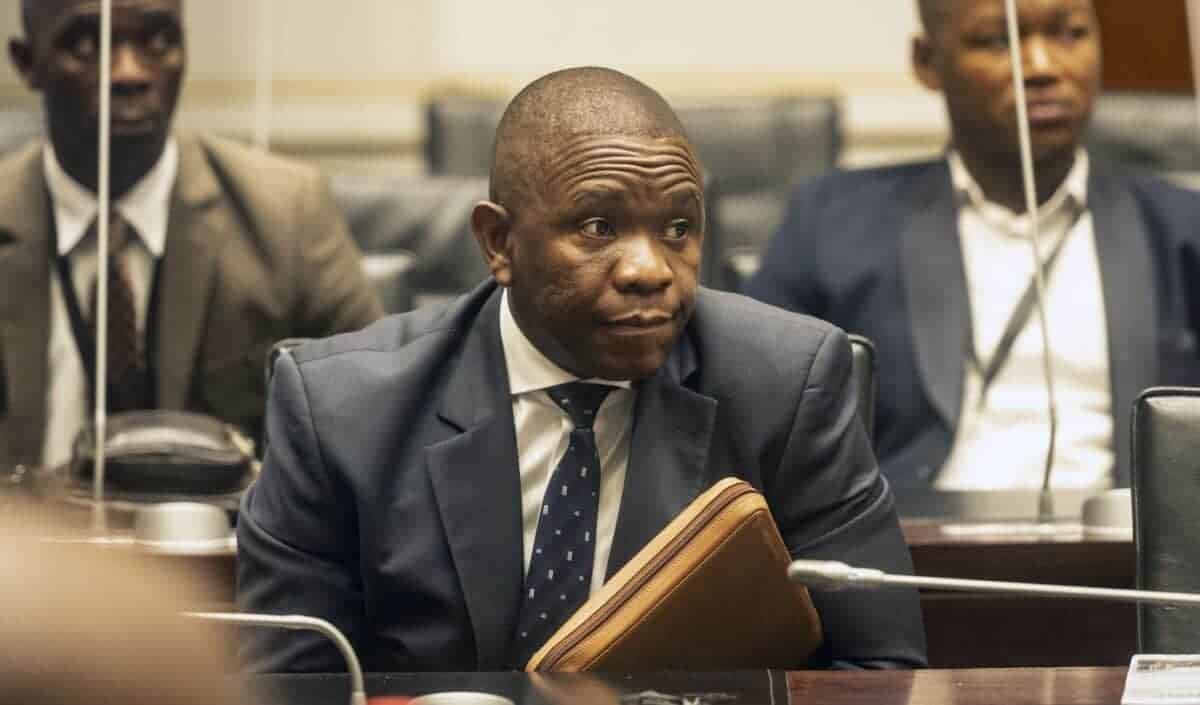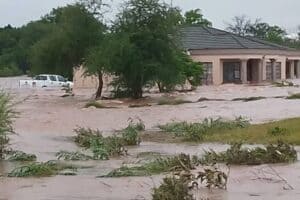Lieutenant-General Mkhwanazi’s call to investigate journalists sparks debate over press freedom, accountability, and the balance between secrecy and public interest.

Former Ugandan dictator Idi Amin is attributed with saying: “There is freedom of speech, but I cannot guarantee freedom after speech.”
This quote is mostly used in humorous tones in discussions about life under a dictatorship.
Although said by a dictator as a threat to those opposed to his rule, the central message in the quote is applied by people in open and democratic societies across the world to silence their critics.
This week, Lieutenant-General Nhlanhla Mkhwanazi called for an investigation into journalists by police counterintelligence to find out how they get access to information police intelligence has categorised as classified.
Mkhwanazi had not even left his engagement in parliament at the ad hoc committee looking into his allegations of corruption and political interference on the police and judiciary before he was called all sorts of names on social media and in the press.
Yip, he had “freedom of speech” but his freedom afterwards was not guaranteed.
ALSO READ: Sibiya explains how he knows Brown Mogotsi and Cat Matlala
The South African National Editors’ Forum (Sanef) didn’t need any more prompting before “condemning in the strongest terms” Mkhwanazi’s “deviation” and “extraordinary attack on media freedom”.
A visitor from outer space could have sworn that Mkhwanazi had called for a ban of the press. It is important to note that Mkhwanazi’s allegations are not without historical context.
Journalists have been used in the past by both the state, political organisations and individuals to drive narratives that are of benefit to them. And this is not to justify a blanket condemnation of all media houses.
It is to remind Sanef that under the self-regulation regime that the press uses to ensure fairness, a lot of damage has been done to individuals and institutions.
A lot of good people have “fallen through the cracks” of self-regulation.
South Africans do not have to go back more than a decade to find stories of media houses that chose to drive the narrative that state capture did not exist, even after their government spent over R1 billion in four years on a commission investigating and proving state capture.
ALSO READ: ‘I didn’t see it coming’: Sibiya on how his relationship with Mkhwanazi deteriorated
This country knows full well of trusted and established media houses that were themselves captured and ran with stories of “brothel houses that were run by the SA Revenue Service” to the overall detriment of the country and, in some cases, irreversible damage to the careers and reputations of whistle-blowers.
Do these justify Mkhwanazi’s call for counterintelligence investigations into the media?
Yes and no.
Yes, in cases where a journalist or media house publishes classified information and it can be proven that their sole purpose of running that story is to sabotage a police investigation.
No, in cases where it can be proven that police are hiding behind classified documents to squander public funds or hiding their wrongdoings from the public.
In other words, a balance is needed. A balance between journalists knowing that if their intentions are to destroy reputations and investigations, there will be consequences, and the police knowing that a free press exists to expose their malfeasance.
ALSO READ: Senzo Mchunu fights back after police tried to search his house
Mkhwanazi is no saint. Not everything he says must be taken as gospel. The man even hinted at a social media ban as a tactic he would have suggested to prevent the July 2021 riots, something that would have had more disastrous consequences.
And for a publication to christen Mkhwanazi ‘Moegoe of The Week’ for a suggestion that would curtail lazy journalism screams “we have something to hide.”
Being scribes, Sanef is familiar with the saying, “the lady doth protest too much, methinks”.
Maybe the general hit a nerve.






